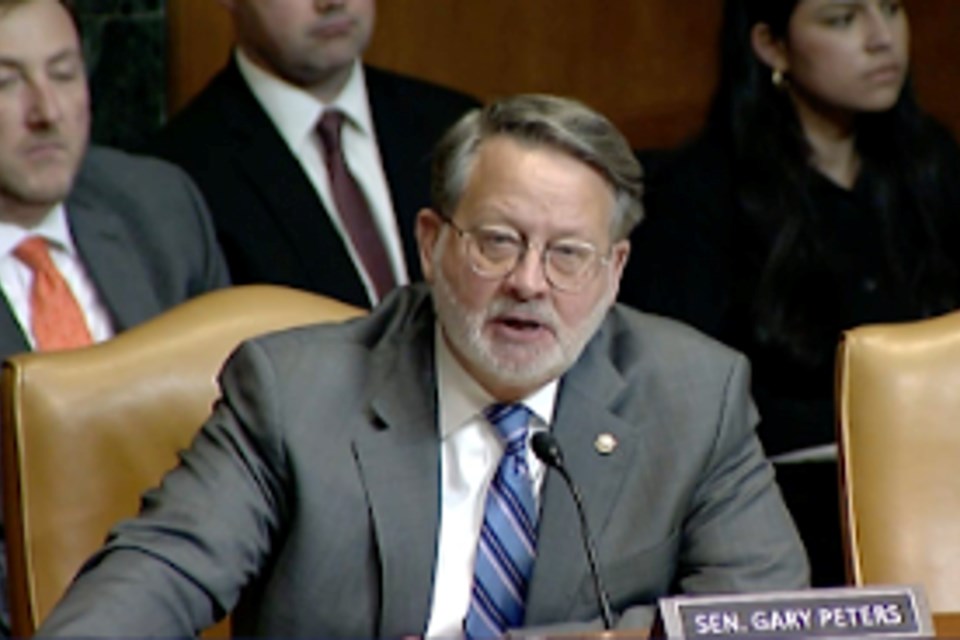NEWS RELEASE
U.S. SENATOR GARY PETERS
***************************
WASHINGTON, D.C. – Bipartisan legislation authored by U.S. Senator Gary Peters, Chairman of the Homeland Security and Governmental Affairs Committee, to improve security for federal employees and members of the public who use federal buildings passed the U.S. House of Representatives and now heads to the President’s desk to be signed into law. Every day, federal facilities face a wide range of threats, including active shooters, cyber-attacks, hostile surveillance, improvised explosive devices, and more. The bipartisan Improving Federal Building Security Act of 2024 will require federal agencies to adequately respond to security recommendations issued by the Federal Protective Service (FPS) within 90 days.
U.S. SENATOR GARY PETERS
***************************
WASHINGTON, D.C. – Bipartisan legislation authored by U.S. Senator Gary Peters, Chairman of the Homeland Security and Governmental Affairs Committee, to improve security for federal employees and members of the public who use federal buildings passed the U.S. House of Representatives and now heads to the President’s desk to be signed into law. Every day, federal facilities face a wide range of threats, including active shooters, cyber-attacks, hostile surveillance, improvised explosive devices, and more. The bipartisan Improving Federal Building Security Act of 2024 will require federal agencies to adequately respond to security recommendations issued by the Federal Protective Service (FPS) within 90 days.
“Millions of dedicated federal employees and the Americans who are accessing critical government services visit federal buildings across the nation every day – and they deserve to feel safe and secure in those spaces,” said Senator Peters. “Once signed into law, this bill will help ensure federal agencies are following the most up-to-date security recommendations to protect both these facilities and the people in them.”
More than 9,000 federal facilities hosting 1.4 million employees and countless visitors are protected by the FPS within the Department of Homeland Security (DHS). While FPS plays a key role in keeping federal facilities safe, agencies can be vulnerable to security threats when they do not adopt FPS’ facility security recommendations. In fiscal years 2017 through 2021, the Government Accountability Office (GAO) found that FPS submitted over 25,000 facility security recommendations, yet agency facility security committees completely ignored 57 percent of those recommendations. When agencies did acknowledge the FPS guidance– they only implemented 27 percent of the recommended security measures. Chairman Peters convened a hearing in November 2023 on the growing threats to federal buildings where witnesses testified that agencies are currently ignoring more than half of FPS recommendations to improve building security.
The legislation requires federal agencies to adequately respond to security recommendations issued by FPS within 90 days. Agencies may choose to adopt or reject FPS recommendations. However, agencies must provide an explanation to DHS detailing the reasons for any rejected recommendations. The legislation also requires DHS to develop a method to monitor the responses to FPS security assessments and take reasonable actions to ensure agency responses, holding agencies accountable to adopting sound, defensible security decisions. DHS would report annually to Congress on agency responses to FPS security assessments, which would provide a regular snapshot of the threat and security landscape.
***************************



